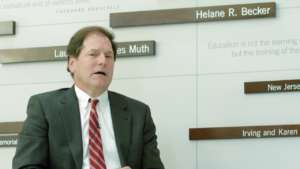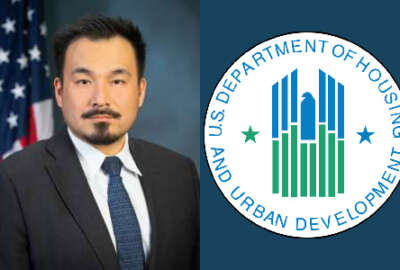

Irv Dennis, the CFO for the Department of Housing and Urban Development, said his office already has kicked off initiatives to implement robotics process automa...
It was a long-time in coming, but the Department of Housing and Urban Development entered phase 2 of the IT Modernization Centers of Excellence program.
More than a year after completing phase 1, HUD recently awarded contracts to two vendors to move its cloud computing and customer experience CoEs into the implementation stage.
Irv Dennis, HUD’s chief financial officer, said the agency hasn’t been sitting around waiting for phase 2 to begin to address some of these pressing technology needs. But now that the CoEs are moving into the next phase, they will accelerate HUD’s transformation of its technology and its culture.

Over the last two-plus years, Dennis said HUD began to breakdown traditional barriers, particularly around customer experience.
“What we want to do is be more interactive with our customers. We are a very siloed agency where each program works in isolation,” Dennis said in an interview with Federal News Network. “We have transformed this agency in many ways to work more closely together between the C-suite offices and the programs. As it relates to customer experience, we want to measure the customer sentiment. We want to hear their voice. We want to take their observations and interactions with us and help us deliver services better.”
While HUD has made some progress so far, the CoEs will help the agency better use data to serve grantees and others customers.
Dennis said one goal under the CoE effort is to streamline the processes for grantees so they don’t have to fill out the same information over and over again as they apply for different opportunities.
For the customer experience effort, HUD hired Booz Allen Hamilton to build a centralized customer experience capability under a new Office of Customer Experience.
Under the cloud CoE, HUD hired Systems Engineering Solutions Corp., which will focus on modernizing the agency’s electronic records management processes so it can stop accepting millions of paper forms that require manual data entry and makes data gathering much more difficult.
Like with customer experience, HUD hasn’t been waiting for the award. Dennis said as part of the agency’s digital transformation effort, it has modernized forms and processes with intelligent automation.
In the CFO shop, Dennis said applying robotics process automation (RPA) to an accounting accrual process reduced the time it took to 65 hours from 2,500 hours.
“What used to be a six month project can be done in 10 days now. Once folks saw that, they were excited and I challenged them to come up with other projects,” he said. “We now have identified 35 different processes and 70,000 hours that we will be implementing over the next few months.”
Dennis said now that HUD awarded two of the three CoEs, there are some short term goals that are on the near horizon.
He said for customer service, HUD expects to have the foundational platform built quickly in the next year.
“Over the longer term, the goal is to have a culture change at HUD where this is just a way of life without having to think about it. When we see processes that could be automated, we just automatically do that,” Dennis said. “HUD has a relatively aged workforce so trying to change culture and bring in a new way of thinking is not easy. We have a lot of great people at HUD who have embraced a lot of these initiatives. We are not about eliminating jobs by any stretch. We are about creating effectiveness and being more efficient. People enjoy being data analyzers versus pushing numbers around.”
HUD still will award a third CoE for data analytics. The agency released request for quotes for six areas but likely will end up making three total awards.
Dennis said the data CoE will help with:
This is another area where HUD isn’t waiting on the CoEs. Dennis said HUD is about to launch a new analytics dashboard in the CFO shop that will, for the first time, provide 25 years worth of subsidy obligation information.
“You can take that data and slice and dice it in multiple ways, by state, city, congressional district, grantee and more. You can see what was obligated, what is left to spend and what the grantees are doing with the funds,” he said. “We will be adding all of our grants in one simple dashboard. We have this data, but haven’t unlocked it in a way that we thought of before.”
Dennis said the bigger change that has been happening in parallel with the CoEs is how the programs are working together more closely.
He said through the agencywide integrity task force, which is made up of the CXO community and programmatic leaders who meet monthly, the long-standing barriers to communication and sharing are slowly coming down.
“The idea is to get that cascaded out to the customers so we can go as one agency to the grantee, bring their voice back and make business process and decision changes as one HUD agency versus individual programs,” he said. “We are launching a campaign to educate the program leaders and managers to what digital transformation can do. You don’t need to know the technology, you just need to know what it can do. If you know that capability, then your mind can start to wander to where are those manual hours that you can eliminate. It’s not an overnight implementation. It’s an education process to get people bought in and some do it quicker than others. But once you get a few of those bought in, it will cascade itself throughout the agency and that’s what we are seeing.”
Copyright © 2024 Federal News Network. All rights reserved. This website is not intended for users located within the European Economic Area.
Jason Miller is executive editor of Federal News Network and directs news coverage on the people, policy and programs of the federal government.
Follow @jmillerWFED


